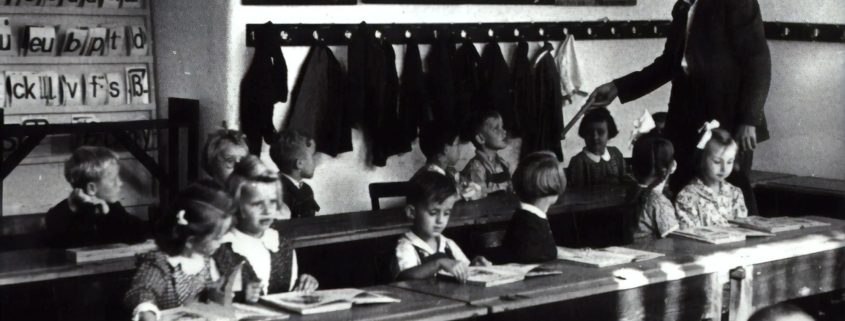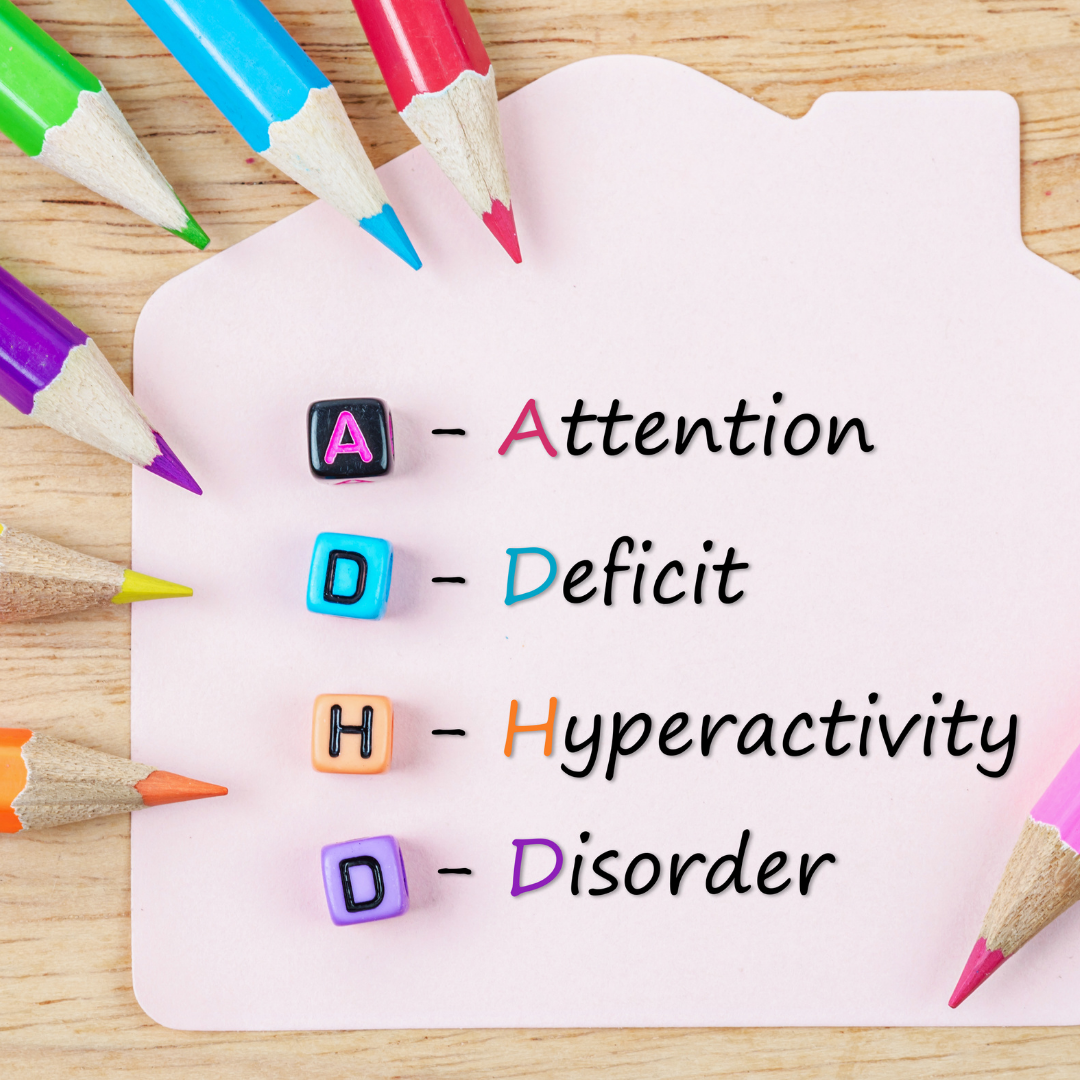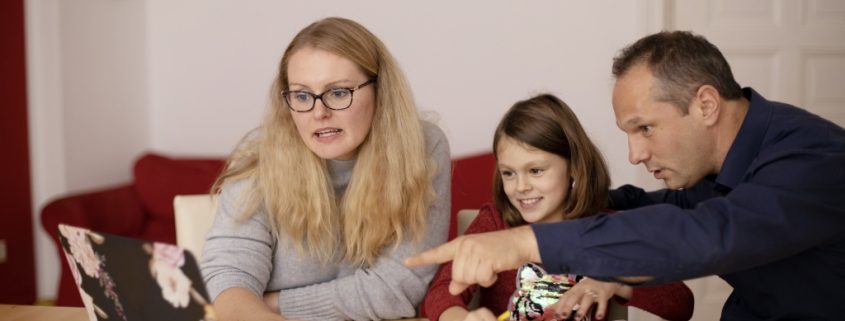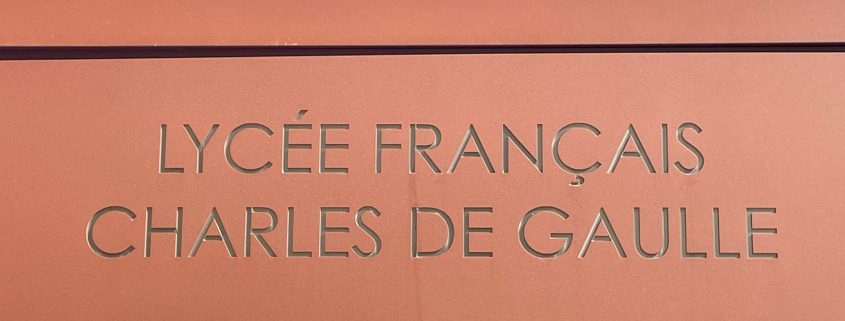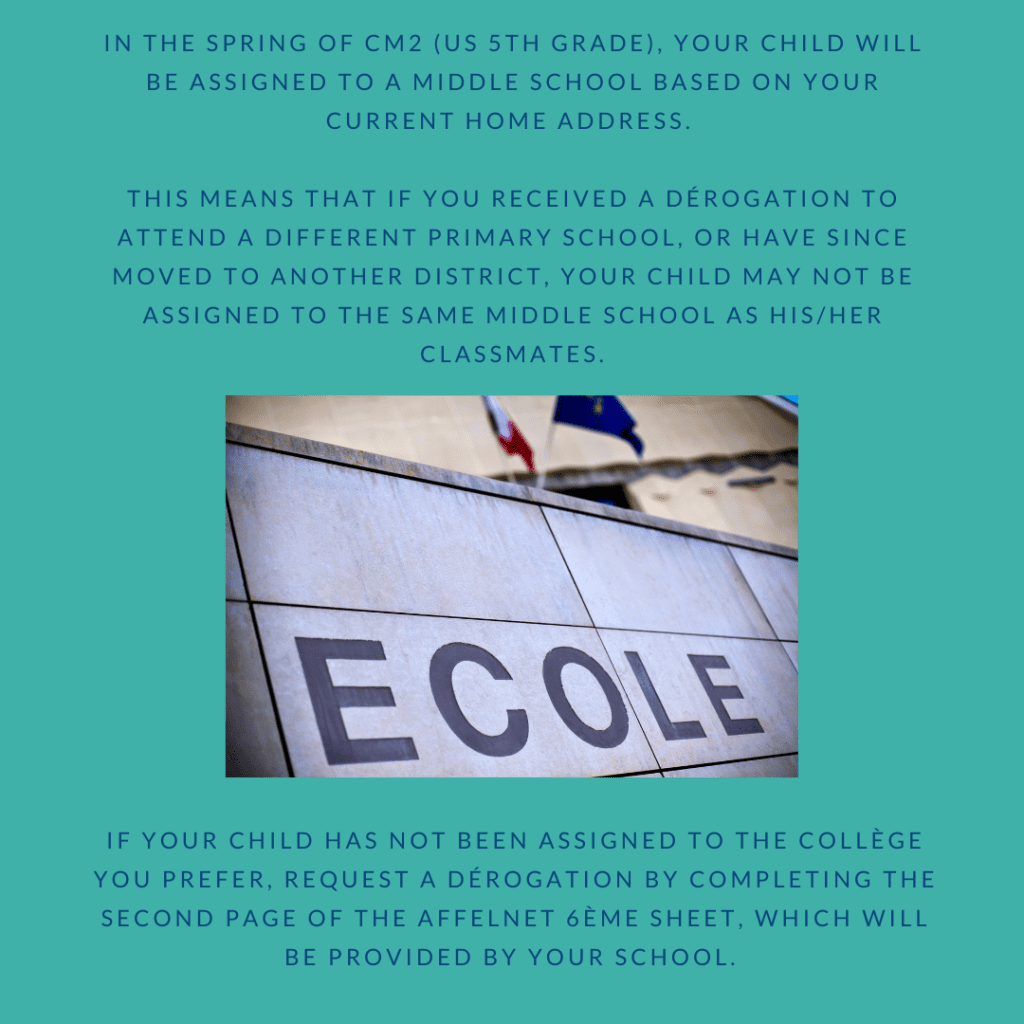By: Barbara Moross,
Former Head of Lower School – American Section, Lycée International de Saint Germain-en-Laye
In France, education is mandatory beginning at age three, and parents are expected to enroll their children in the first year of Pre-school or Maternelle. The three years of Maternelle, Petite Section, Moyenne Section, and Grande Section, make up the first of three 3-year groups or cycles. The last year, Grande Section, is equivalent to American kindergarten. After these first three years, students move to a different building for their elementary school years.
The next five years, which correspond to American grades 1 through 5, are divided into two parts or cycles. The first cycle includes cours préparatoire or CP, cours élémentaire – 1ère année or CE1, and CE2, cours élémentaire – 2ème année. It is called the cycle des apprentissages fondamentaux, and its major goal is to give children a solid grounding in basic skills – “reading, writing, and arithmetic”. The next three years, cours moyen – 1ère année or CM1, cours moyen – 2ème année or CM2, and 6ème comprise the cycle de consolidation. Its goal is to solidify and build on the foundation that was laid in the earlier years.
1 – Cycle des apprentissages premiers
| Year | Age | Corresponding US Grade |
| Petite Section PS | 3 years | Pre-school |
| Moyenne Section MS | 4 years | Pre-school |
| Grande Section GS | 5 years | Kindergarten |
2 – Cycle des apprentissages fondamentaux
| Year | Age | Corresponding US Grade |
| Cours préparatoire – CP | 6 years | First Grade |
| Cours élémentaire – 1ère année CE1 | 7 years | Second Grade |
| Cours élémentaire – 2ème année CE2 | 8 years | Third Grade |
3 – Cycle de consolidation
| Year | Age | Corresponding US Grade |
| Cours moyen – 1ère année CM1 | 9 years | Fourth Grade |
| Cours moyen – 2ème année CM2 | 10 years | Fifth Grade |
| 6eme | 11 years | Sixth Grade 1st yr of middle school |
In public and private sous contrat schools, children receive 24 hours of instruction each week. Some children who are experiencing difficulty receive an extra two hours each week of individualized instruction called aide personnalisée. At the end of each cycle, students take national exams to assure that they have acquired the knowledge and skills necessary to proceed.
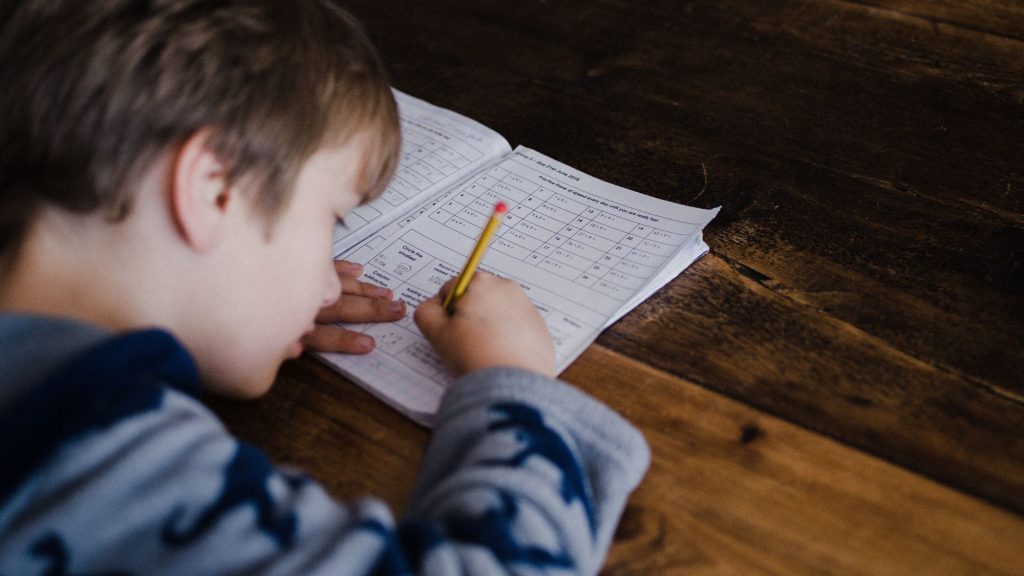
Cycle des apprentissages premiers – PS, MS, and GS
This three-year cycle has for its goal to make children want to go to school to learn and to develop their personality. It is at this level that children will learn together. They will develop their oral language and begin to discover writing, numbers, and other areas of learning. They learn by playing, thinking, and solving problems, practicing, recalling, and memorizing.
Cycle des apprentissages fondamentaux – CP, CE1, and CE2
During this three-year cycle, children learn to read, write, and spell. They are also introduced to some basic notions of French grammar and verb conjugations, which are necessary to be able to spell most words correctly. Reading should be taught using a synthetic phonics approach – children learn to recognize the spellings of sounds and synthesize or blend those sounds together to make words. However, some teachers prefer to use a modified version of this method.
In math, children are taught to work with numbers from 1 to 100. They first learn to add, and then to multiply and subtract. Division comes later. Initiations to geometry and the metric system are also covered. Practicing mental math as well as doing word problems is considered indispensable.
Of the 24 hours per week, roughly ten are spent on language arts, five on mathematics, and the other nine are divided among gym, art (which includes visual and performing arts) and art history, foreign language, social studies, science, citizenship education, and technology. It is important to point out that, unlike American schools, where there are special teachers for most of these subjects, the French instituteur or classroom teacher is often responsible for teaching everything.
Neatness (le soin) counts! From the beginning there is an emphasis on the presentation of one’s work. French teachers expect that even young children will pay attention and write clearly between rather narrow lines. Most children will be introduced to using a fountain pen in CE1 or CE2. Students learn to write in cursive in first grade and never go through a printing stage. Upper case letters, which can be complicated to replicate, are not taught until CE1.
It is important to recognize that the transition from maternelle to elementary school can be difficult for some children. They are expected to stay seated at a desk for long periods of time and listen to the teacher. In the worst cases, teachers might humiliate children by reprimanding them publicly. And although methods are changing slowly, France is far from the cutting edge of modern pedagogy. Attempts at differentiation of instruction and active, child-centered learning are being made, but they are not the norm.
Cycle de consolidation – CM1, CM2, and 6eme
During the first two years of this cycle, students are still in elementary school. Eight of the 24 hours of instruction each week are devoted to language arts and five to mathematics. The remaining eleven hours are split among the other subjects as above. The content presented builds on what the students have learned before. At this stage, students are expected to work more independently and gradually become autonomous. The goal is to prepare them for the departmentalized approach that they will encounter once they reach collège (middle school). For further detail in French on the national curriculum, consult www.education.gouv.fr.
A Word on Homework
In 1956 an official French text was published stating that “Aucun devoir écrit, soit obligatoire, soit facultatif, ne sera demandé aux élèves en dehors de la classe.” (No written homework). This text was reaffirmed several times over the years in 1958, 1962, 1964, 1994, 2002, and most recently in 2020. Despite this directive, however, it is rarely the case that children have no written homework. Amounts vary among teachers, and from grade to grade, as well as from school to school. Mostly, children have things to memorize or study, but invariably there will be written exercises to complete as well.
This overview gives an idea of how the school system is organized throughout the country. However, as is the case around the world and through the centuries, your child’s experience will depend largely on the individual teacher he or she is assigned from year to year.

